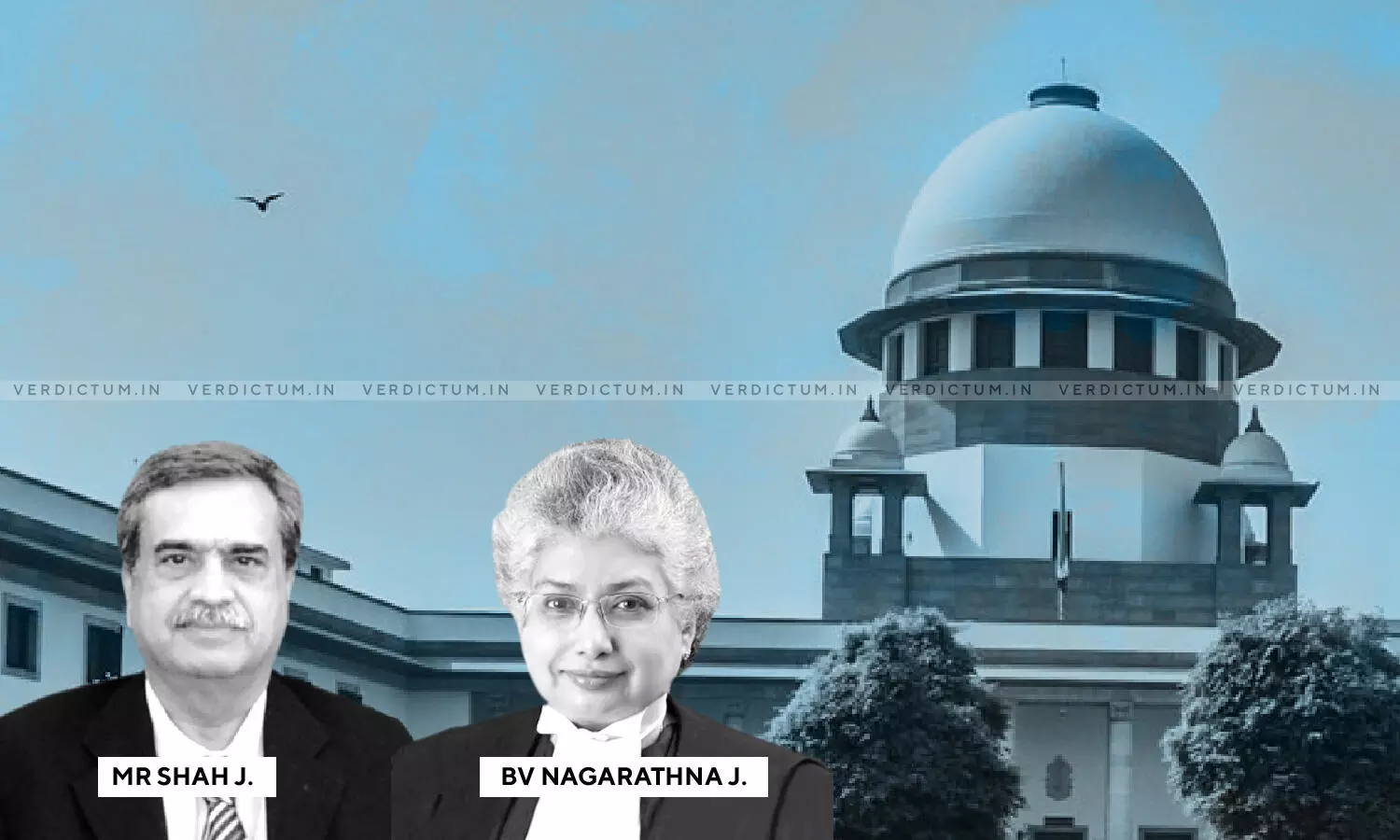
Offences Under Section 63 Of Copyright Act Are Cognizable In Nature – Supreme Court Reiterates
 |
|A Supreme Court Bench of Justice MR Shah and Justice BV Nagarathna quashed and set aside a judgment of the Delhi High Court, by which the High Court had quashed an FIR filed against the Respondents for the offences under Sections 63 and 64 of the Copyright Act, 1957 on the grounds that offence under Section 63 of the Copyright Act is a non-cognizable offence.
While setting aside this judgment, the Supreme Court opined "Only in a case where the offence is punishable for imprisonment for less than three years or with fine only the offence can be said to be noncognizable", while noting that the maximum punishment under Section 63 of the Copyright Act is three years imprisonment.
Senior Counsel Shri Siddhartha Dave appeared for Respondent No. 2. Mr RK Tarun appeared on behalf of the Appellant.
The Appellant filed an application under Section 156(3) CRPC and sought directions from the Chief Metropolitan Magistrate for the registration of FIR against Respondent No. 2 for the offences under Sections 51, 63 & 64 of the Copyright Act read with Section 420 of the IPC.
The CMM allowed the application and directed the concerned SHO to register the FIR, and the FIR came to be registered. Respondent No. 2 approached the High Court, praying to quash the criminal proceedings on various grounds. However, at the time of the hearing, the accused prayed to quash the criminal proceedings on the sole ground that the offence under Section 63 of the Copyright Act is not a cognizable and a nonbailable offence.
The High Court allowed the Writ Petition and quashed the criminal proceedings and order passed by the CMM under Section 156(3) CRPC by holding that the offence under Section 63 of the Copyright Act is a non-cognizable offence.
The Appellant moved before the Supreme Court.
The Supreme Court referred to Section 63 of the Copyright Act and Part II of the First Schedule of the CRPC, to conclude that the maximum punishment under Section 63 of the Copyright Act is three years imprisonment and according to Part II of the First Schedule of the CRPC if the offence is punishable with imprisonment for three years and onwards but not more than seven years then the offence is a cognizable offence.
Relying on the position of law, the Supreme Court opined that the High Court committed a grave error in holding that the offence under Section 63 of the Copyright Act is a non-cognizable offence.
Therefore, the Supreme Court quashed and set aside the order passed by the High Court and ordered that the criminal proceedings against Respondent No. 2 for the offence under Sections 63 & 64 of the Copyright Act must proceed further in accordance with law and on its own merits treating the same as a cognizable and nonbailable offence.